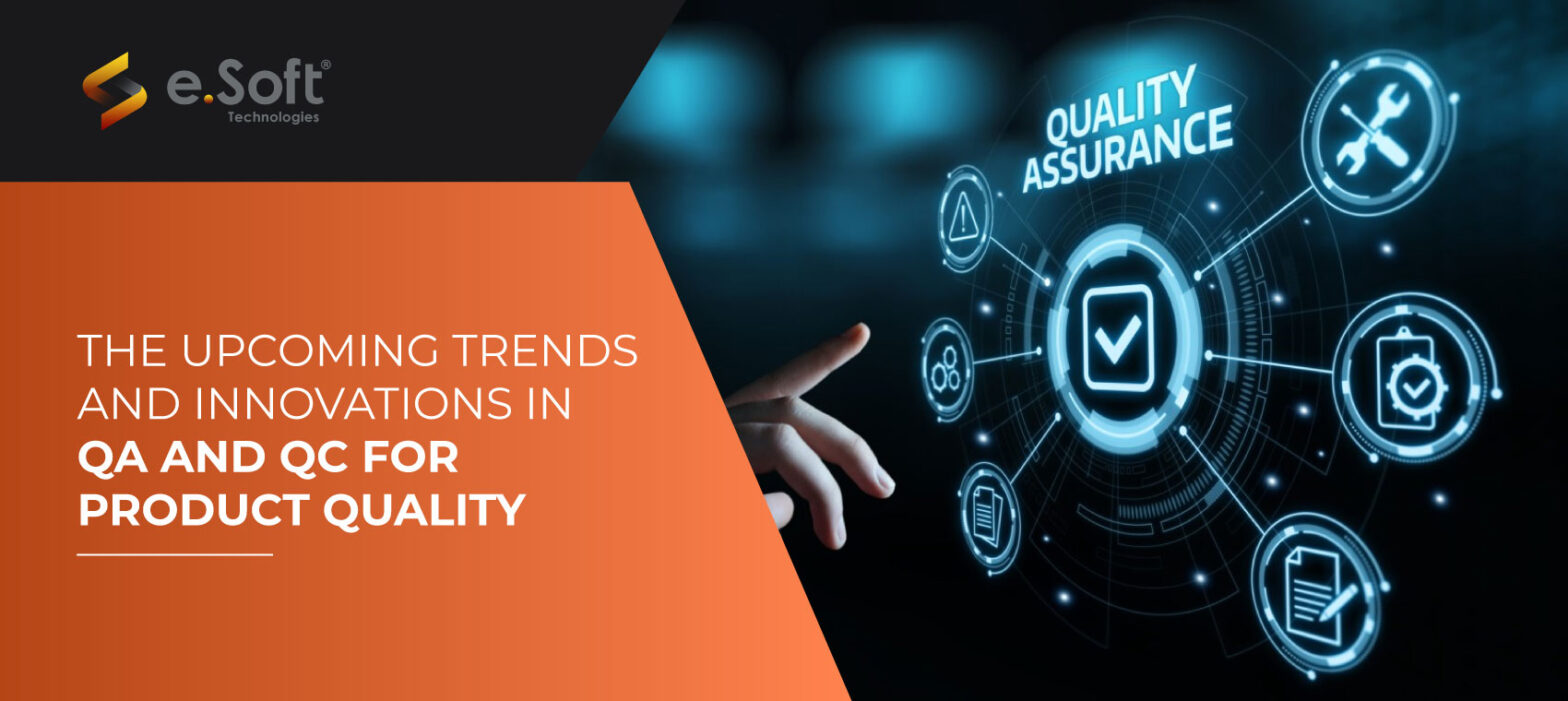
The Upcoming Trends And Innovations In QA And QC For Product Quality
Quality assurance and quality control practices are constantly evolving to keep pace with technological advancements and changing business needs. This blog will discuss some of the major upcoming trends and innovations expected to transform QA/QC approaches to ensure product quality.
The Rise Of AI-Assisted Testing:
Leveraging AI for testing offers immense potential to streamline processes and augment human capabilities. Trends include:
- Manual QA testing services will leverage AI to offload repetitive tasks, allowing testers to focus on creative, exploratory work requiring human judgment.
- AI-generated test cases based on requirements and risk analysis will boost coverage.
- Automated defect classification and priority assignment aid in faster remediation.
- AI-powered test case optimization and reduction improve efficiency.
- While not replacing humans, AI will be a productivity multiplier for testers.
Focus On Testing Culture:
- Top performers recognize testing as a mindset, not a phase:
- Developers take ownership of code quality rather than treating testing as a "police function".
- Cross-functional collaboration and early feedback improve requirement clarity.
- Leaders prioritize quality over speed through appropriate OKRs and metrics.
- Employees feel empowered to report issues without fear of blame.
- Establishing the right culture is as critical as any technical change.
Evolution Of Testing Skills:
To remain relevant, testers must continually upgrade skills in:
- Automation programming, virtualization, cloud, and CI/CD pipelines.
- AI basics, model validation, bias detection, and test data synthesis techniques.
- Analytics for metrics extraction, visualization, A/B testing, and statistics.
- Soft skills like communication, collaboration, critical thinking, and leadership.
- Domain expertise through specialization in verticals like fintech, healthcare, and retail.
- Lifelong learning will be pivotal to keeping pace with technological change.
Advancements In Testing Tools:
Tools are evolving to support emerging trends:
- AI-powered test case generation, execution, and optimization tools.
- Cloud-based load/performance testing platforms for on-demand scalability.
- Defect prediction, test prioritization, and intelligent test case reduction using machine learning.
- Model-based testing to generate/execute tests from requirements/design models.
- Collaborative testing management boards and review tools.
- It will boost productivity, coverage, and quality insights.
Growth Of Testing As A Service
More firms will tap external testing services for flexibility and specialized skills:
- Security testing by certified experts helps identify risks proactively.
- Performance testing leverages cloud infrastructure and specialized tools.
- Compliance testing ensures privacy, accessibility, and regulatory requirements.
- Specialized testing addresses skills gaps for mobile, APIs, IoT, or other domains.
- Augmenting internal teams during spikes or new initiatives eases resourcing pressures.
- It will optimize in-house investments while delivering comprehensive quality validation.
Types Of AI/ML Techniques In Testing:
There are several AI/ML techniques being employed to automate testing tasks:
Supervised learning trains algorithms on labeled datasets to classify or predict output
values. It will be employed for test case prioritization based on defect history. Unsupervised learning will detect patterns in unlabeled data. It will power capabilities like automatic test case generation based on requirements analysis.
Deep learning employs neural networks with many layers to solve complex problems. Computer vision APIs use deep learning to validate UI screenshots. Reinforcement learning will permit software agents to learn optimal behaviors through trial and error in simulated environments. It is well-suited for testing autonomous
systems.
Test Environment Automation:
Infrastructure As Code With Terraform:
Terraform is a prominent open-source tool to define infrastructure resources like VMs, networking, and storage using code. It will permit the creation of reproducible test environments through versioned configuration files. Developers define resources in code and Terraform provisions and update or destroy them on demand. This ensures
environments are always available and consistent.
Cloud-Based Options:
Major cloud providers also offer managed infrastructure-as-code services like AWS CloudFormation, Azure Resource Manager Templates, and GCP Deployment Manager that further simplify environment setup without running Terraform locally. Serverless computing platforms take it a step further by abstracting away infrastructure
completely.
Conclusion:
High-quality, resilient software products will be a key competitive differentiator going
forward. Firms that proactively monitor testing trends, experiment with innovations, and continuously upskill their teams will be best equipped to ensure the quality expectations of customers.


 +91-22-49727454
+91-22-49727454